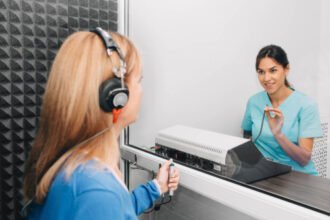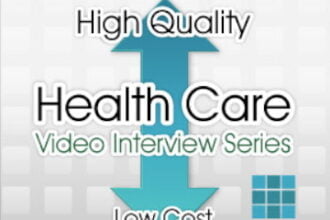I once madethe mistake of expressing doubts about acupuncture to a friend who was a “true believer”. Like all true believers, there was an almost religious fervor in his testimonial. After all, he personally experienced relief of his low- back pain, lasting 3 days! How could I, armed with all the scientific data but no personal experience, doubt him? Iam happy to report that we are still friends. But the conversation caused me to think about a more fundamental question of what do you mean by “work”. When I look at results of a drug trial and see that the experimental arm is no better than the control, both showing a 30% effect (or 50% in psychiatric drug trials), the conclusion is clear-cut: the experimental arm is no better than placebo. The drug doesn’t work. But ask the 30% who experienced an effect and they will swear up and down that the drug does work. So who is right? Unlike the common perception, the placebo effect is not “all in your head” because you are gullible, or suggestible, or worse. It is literally in your head; many studies have clearly demonstrated that endorphins, dopamine, endogenous cannabinoids (as in cannabis, the active ingredient in marijuana) are major factors in the placebo effect.
Acupuncture
Recently, a study was published in the online edition of the Archives of Internal Medicine (September, 2012) which ostensibly shows that “it works” in the “scientific” sense of the word, namely that it is superior to placebo. Well, barely. The authors, who include researchers with Memorial Sloan-Kettering Cancer Center in New York and several universities in England and Germany, conducted a meta-analysis of the best available studies that had been published on the subject. They examined 29 studies involving almost 18,000 adults, and meticulously went through the individual charts of the patients. Meta analysis is not as robust a method as randomized, double-blind, controlled study design. But the large number of patients involved, the careful accounting for confounding factors, and the painstaking examination of individual patient data make this study pretty robust. As to the results, the difference between the acupuncture group and regular treatment (no acupuncture) was very large in favor of acupuncture. But this comparison is not addressing the main question: what is “real” and what is placebo? This can be done only by comparing acupuncture and sham treatment with needles that resembles acupuncture, but isn’t the real thing. And here the picture is less clear; acupuncture was better than sham, but only barely. And given the difficulty of accounting for all possible confounding factors, it is impossible to state with confidence that acupuncture is anything more than a placebo. But this is the “scientific” conclusion. What about the patient? After all, he/she are what medicine should be about. Indeed, here is the author’s conclusion: “Acupuncture is effective for the treatment of chronic pain and is therefore a reasonable referral option ( emphasis mine). Significant differences between true and sham acupuncture indicate that acupuncture is more than a placebo. However, these differences are relatively modest, suggesting that factors in addition to the specific effects of needling are important contributors to the therapeutic effects of acupuncture” The key words here are “reasonable referral option”. This is revolutionary; what it says is that even though the benefit of acupuncture is slight to non-existent from a strictly scientific of view, who cares. The patient is the measure, and if there is pain relief we should not deprive him or her of the benefit just because the mechanism is either unknown or is due to placebo effects on the brain. I find it ironic that until the 18th century (the age of enlightenment and invention of the scientific method) this was the main mode of therapy. The physician holding the hand of the bedridden patient was the subject of many art works. Plant extracts, potions, voodoo, these were the only tools available since the ancient civilizations of Egypt, Mesopotamia, the Indus valley and China. Maybe we should go back and reexamine the clay tablets, hieroglyphs, Hindu Vedas and Chinese parchment manuscripts. There may be great wisdom in thar them writings.








